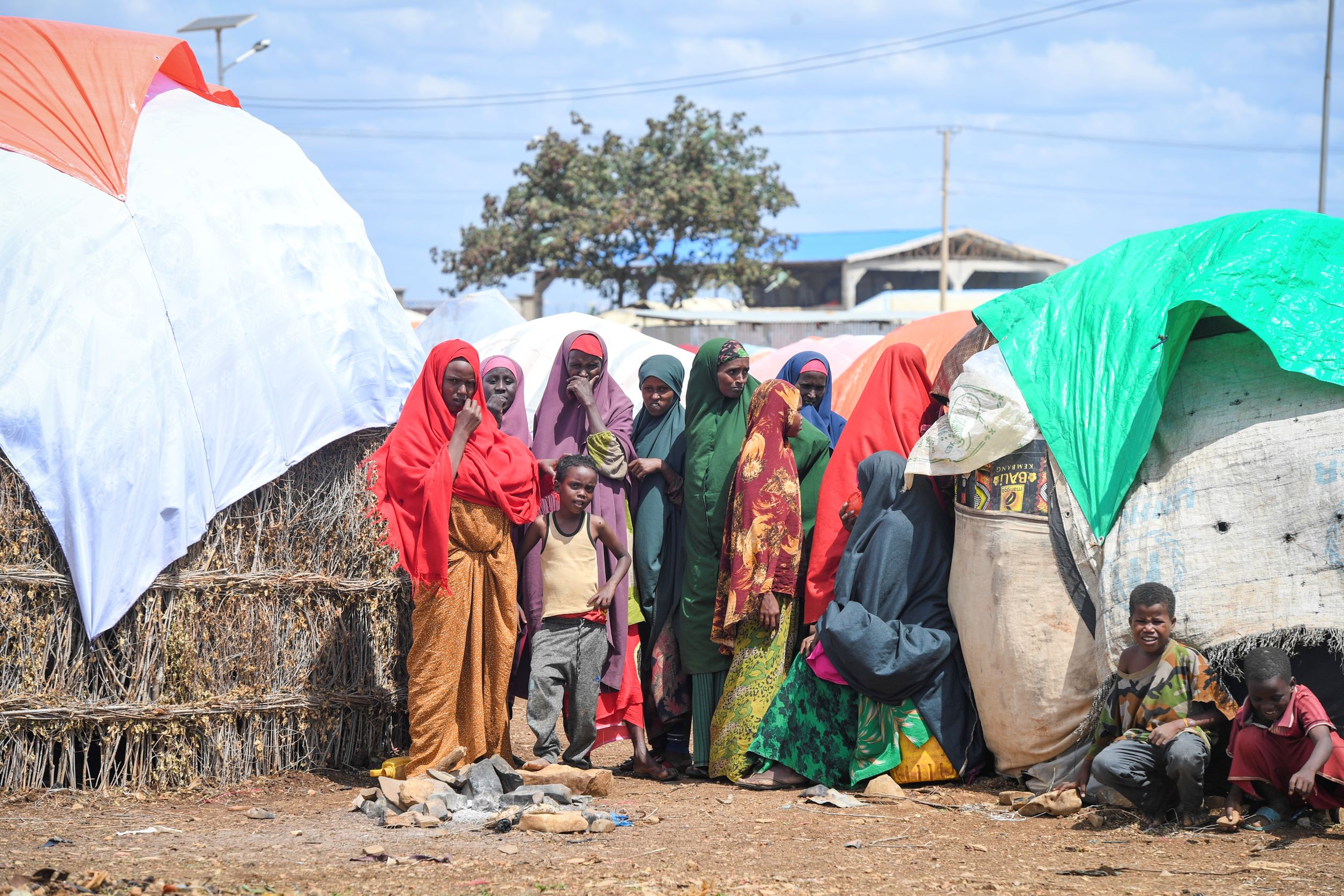Last year, the UN said more than 755,000 people have been internally displaced in Somalia because of the country’s severe drought.
Qatar has renewed its support for security and stability in Somalia during its hosting of a third five-party meeting in Doha on Tuesday.
Officials from Somalia, the United States, the United Kingdom, the United Arab Emirates and Turkiye attended the meeting in the Qatari capital, chaired by Qatar’s Minister of State for International Cooperation at the Ministry of Foreign Affairs Lolwah Al Khater.
Qatar’s Special Envoy of the Minister of Foreign Affairs for Counterterrorism and Mediation in Conflict Resolution Dr. Mutlaq Al Qahtani was also in attendance, a foreign ministry statement said.
Officials at the meeting, the third of its kind, discussed Somalia’s current security, political and humanitarian situation and means to achieve stability in the crisis-hit country. Officials initially met in London in November 2022 before convening for the second time in Washington in March earlier this year.
Discussions on Tuesday also included “proposals that would enhance confidence-building for the stability of Somalia,” according to the statement.
“Qatar reaffirmed its support for Somalia and to continue providing the necessary support to contribute to laying the foundations for security, development and stability and building a state of institutions and the rule of law, which guarantees all rights of Somalis,” the foreign ministry added.
According to a State Department statement from the previous meeting, officials in Washington at the time “discussed how to better support Somalia’s fight against Al-Shabaab and prepare for the African Union Transition Mission in Somalia drawdown”.
Translating to ‘The Youth’ in Arabic, Al Shabaab first emerged as the extremist youth wing of the now-defunct Union of Islamic Courts in Somalia, which ruled Mogadishu in 2006 before Ethiopian forces drove them out.
Al-Shabaab holds connections to other militant groups in Africa, including Boko Haram in Nigeria, and Al-Qaeda in the Islamic Maghreb, which is based in the Sahara desert.
The group seeks to overthrow the central government of Somalia and install its own system of governance based on a strict application of Islamic law, also known as sharia.
The parties in the US meeting also said they were committed to supporting Mogadishu’s “efforts to meet the benchmarks on weapons and ammunition management” to enable the United Nations Security Council (UNSC) to fully lift the arms controls on Somalia’s government.
Speaking to Doha News last month, Somalia’s Deputy Prime Minister Salah Jama noted that Qatar’s leadership in conflict resolution and peace-building could significantly assist Somalia’s pursuit of peace and stability.
“Qatar can play a very significant role in our pursuit of peace and stability, economic growth, and political agreements and settlements,” he told Doha News during his visit to Qatar.
Worsening drought
Meanwhile, Somalia’s worsening drought has continued to drive out thousands of civilians to neighbouring areas. This year’s dry season is the worst in 40 years, with more fears over a rise in famine and displacement.
Last year, the UN said that more than 755,000 people have been internally displaced in Somalia because of the country’s severe drought, raising the total to one million since January 2021.
In March, an estimate from the Somali government and the UN said that after multiple unsuccessful rainy seasons, some 43,000 people may have died in Somalia last year alone.
In April last year, Qatar announced plans to invest $1.5 million as part of an emergency response and “resilience-building” in Somalia.
On 25 May, the Qatar Fund for Development, the United States Agency for International Development, and the British Embassy in Mogadishu launched a $10.5 million drought assistance aid to Somalia.
In addition to boosting recovery efforts, it will allow the Building Resilient Communities in Somalia (BRCiS) consortium to continue providing life-saving services.
For the first time, under the umbrella of the BRCiS consortium, the three-way collaboration will include investments from Qatar, the UK, and the US.
Without humanitarian assistance, more than 500,000 children under the age of five in Somalia are at risk of dying or facing severe malnourishment this year.







